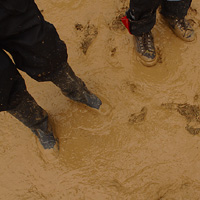The Environment Agency is warning businesses to prepare for the threat of extreme weather events and floods after nearly 7,000 companies flooded in 2007.
The organisation claims small businesses are at more risk of flooding than they are of fire and points out that the effects can be 30 times more costly than a burglary.
The first step the organisation suggests businesses take is to find out whether their premises are in an area at high risk of river or coastal flooding by visiting www.environment-agency.gov.uk. Those that are will qualify for free warnings from Floodline Warnings Direct whenever an alert is issued in the area.
The Environment Agency is also urging businesses to develop a flood plan, as even those not in an immediate flood area can be affected by surface water flooding, where drainage systems cannot cope with intense rainfall.
The plan should include a list of important contacts; a map showing key equipment; protective materials and service shut-off points; and basic strategies to protect property, ensure staff safety and minimise business disruption if a flood occurs.
"We know that small businesses have limited time and resources but with climate change putting increasing numbers of businesses at risk of flooding, investing some time in preparation now could really pay dividends in the future," said Environment Agency chief executive Barbara Young.
"By checking their flood risk and following our simple preparation guide, businesses can cut the cost of damage by as much as 90% and make sure they are protecting their staff and premises."
The Environment Agency recommends businesses ask themselves the following questions in a bid to determine whether or not they could cope with a flood:
- Does my insurance policy cover all types of flooding?
- Do we understand the different flood warning codes and what they mean in practice?
- Are our staff familiar with flood safety procedures?
- Do we all know how to shut off gas, electric and water supplies?
- Can we store valuable equipment and stock above flood level or take other protective action?
- Are there any flood protection products we should be using?






